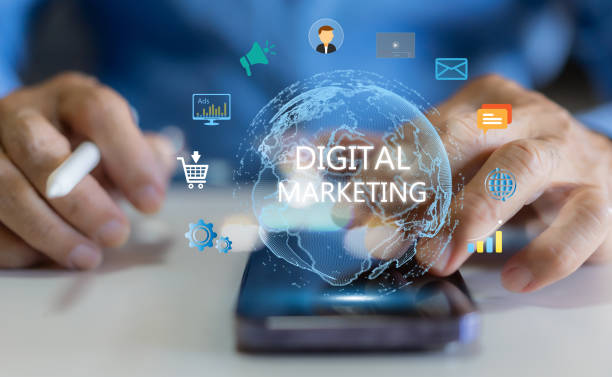What is Digital Marketing?
Digital marketing refers to the promotion of products or services using digital channels such as websites, social media, email, search engines, and mobile apps. It involves various strategies like SEO, content marketing, social media marketing, PPC, and email marketing to reach and engage consumers.
Importance
-
Global reach with personalized targeting
-
Cost-effective compared to traditional marketing
-
Real-time analytics and adaptability
-
Enhanced engagement and trust-building
-
Competitive edge for SMEs against larger brands
Common Types
-
Email marketing: Promotional emails to customers
-
Social media marketing: Engagement through platforms like Facebook, Instagram, and LinkedIn
-
SEO & content marketing: Organic visibility and value-driven content
-
PPC & sponsored content: Paid ads and promotions on websites and platforms
-
Affiliate & influencer marketing
-
SMS & video marketing
-
Website & native marketing
-
Marketing automation tools for efficiency
Digital Marketing Roles & KPIs
| Role | Key KPIs |
|---|---|
| SEO Specialist | Organic traffic, keyword ranking, CTR |
| Content Marketer | Traffic, leads, conversion rate |
| Social Media Manager | Engagement, follower growth, sentiment |
| Email Marketing Specialist | Open rate, CTR, conversions |
| Copywriter | CTR, conversions, brand consistency |
| Project Manager | ROI, timeline, cost per lead |
| Automation Manager | Deliverability, ROI, conversions |
Inbound vs. Digital Marketing
-
Inbound marketing is a subset of digital marketing focused on attracting customers through valuable content.
-
Digital marketing includes both inbound and outbound strategies.
B2B vs. B2C Digital Marketing
-
B2B focuses on LinkedIn, longer buying cycles, and relationship building.
-
B2C targets quicker sales through social media, emotional appeal, and direct offers.
Benefits
-
Global/local targeting
-
Personalization through data
-
Improved conversion and retention
-
Enhanced measurability and optimization
Challenges
-
Time and content demands
-
Market saturation
-
Data privacy concerns
-
Complexity across channels
-
Technical requirements (mobile-friendliness, analytics)

